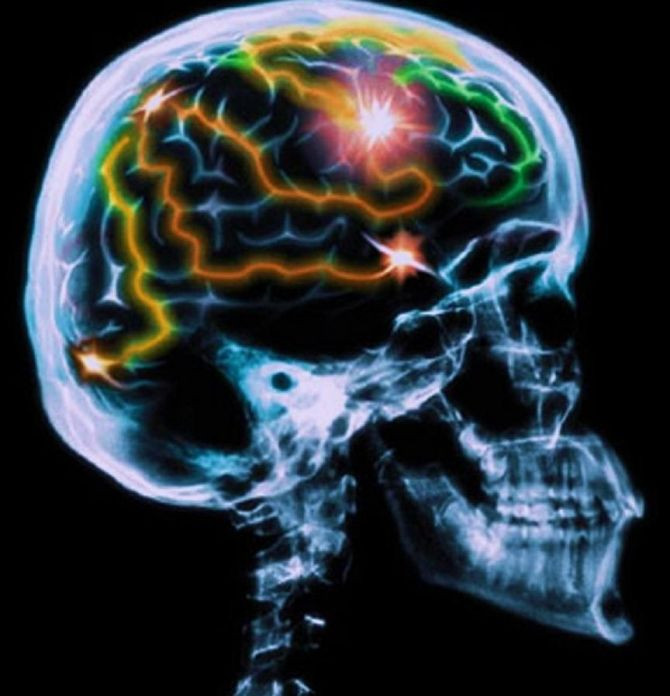Mild Electrocution To Brain May Boost Spatial Memory

A mild electrical shock to the brain before learning a new task may enhance memory, researchers reported on Wednesday.
A team of neuroscientists demonstrated that electrical stimulation to a critical junction in the brain appeared to boost memory in a few patients with epilepsy, a surprising finding that have implications for Alzheimer’s disease treatment.
Dr. Itzhak Fried and his team from the University of California Los Angeles were initially researching the source of epileptic seizures in the brains of seven patients with electrodes that were implanted deep in their brain, and discovered that electrical stimulation to the entorhinal cortex with the embedded electrodes improved participants’ scores on a spatial memory task.
Researchers had the patients play a video game where participants had to drive people around in taxis to different shops in a virtual city, and tested whether stimulation of the entorhinal cortex or the hippocampus while participants were learning their way around the city improved their recollection.
“When we stimulated the nerve fibers in the patients’ entorhinal cortex during learning, they later recognized landmarks and navigated the routes more quickly,” said Fried. “They even learned to take shortcuts, reflecting improved spatial memory.
However, direct stimulation of the hippocampus, the area of the brain involved in the consolidation of memory, did not show the same enhancing effect, according to Fried, suggesting that stimulating the brain at the same time memories are forming was key in obtaining the memory boost.
“Critically, it was the stimulation at the gateway into the hippocampus – and not the hippocampus itself – that proved effective,” Fried explained.
The entorhinal cortex is "the golden gate to the brain's memory mainframe," Fried said in a statement. "Every visual and sensory experience that we eventually commit to memory funnels through that doorway to the hippocampus."
Fried said that while more research is needed to confirm their findings, "our preliminary results provide evidence supporting a possible mechanism for enhancing memory, particularly as people age or suffer from early dementia."
Researchers noted that since the study population consisted of only seven participants the findings should be interpreted with “caution”, and they are still unsure on how widely the findings apply.
In an accompanying editorial Dr. Sandra Black of Sunnybrook Health Sciences Centre in Toronto said that the “enticing” findings need to be replicated, but they definitely open up a realm of new potential applications like improving memory in those at risk of losing it, like early stage Alzheimer’s patients and stroke or trauma patients with damage to brain regions.
Researchers said none of the participants reported adverse side effects of the stimulation. Fried and his research team will now determine whether deep-brain stimulation can enhance other types of recall, like verbal and autobiographical memories.
The findings are published in the Feb. 9 issue of the New England Journal of Medicine.



























